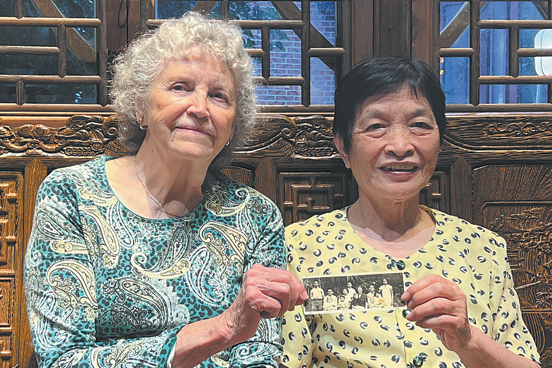Reading between the lines
By Zhao Xu | China Daily | Updated: 2023-08-19 10:36

"The man's head is in the shape of a trapezoid. He's probably wearing a mask and, if he is, then chances are he's a Shamanic witch or chief priest," Fang says.
"As for the beast, its enormous eye may have something to do with sun worship, or belong to an eagle or a feline. But its crouching position also hints at it being a pig. ... I wouldn't be surprised if this mythical creature is an amalgam of various animals — much like the dragon, Chinese civilization's arch emblem."
Although the motif appears on many other forms of Liangzhu jade, including crests and trident-shaped items, its combination with cong contains a significance that is unsurpassable, says Fang.
"Cong, in my view, embodies within its geometric form the Liangzhu people's view of the universe," he continues. "From top to bottom, the cylinder — if it can be called one — has a very slight taper. If you have the experience of standing in an open field surveying your surroundings, with an unobstructed view, you would know that the earth is a circle — or at least appears so to you — with its border defined by where it meets the heaven. The heaven, of course, is also a circle, albeit a bigger one encompassing you."
Fang believes that, while the hollow cavity inside creates a channel between heaven and earth, the outer, rectangular prism, with its four vertical faces and eight corners, stands for si mian ba fang, meaning all directions.
"This is acute observation articulated through abstraction," reflects Fang, who considers Liangzhu civilization one centered around, if not solely defined by, its jade culture.
"Why? Because it holds the key to issues of cultural identity, political organization and social development. Through jade, the people of Liangzhu have conveyed their ideas about nature, beauty, power, religion and ultimately, themselves."
























